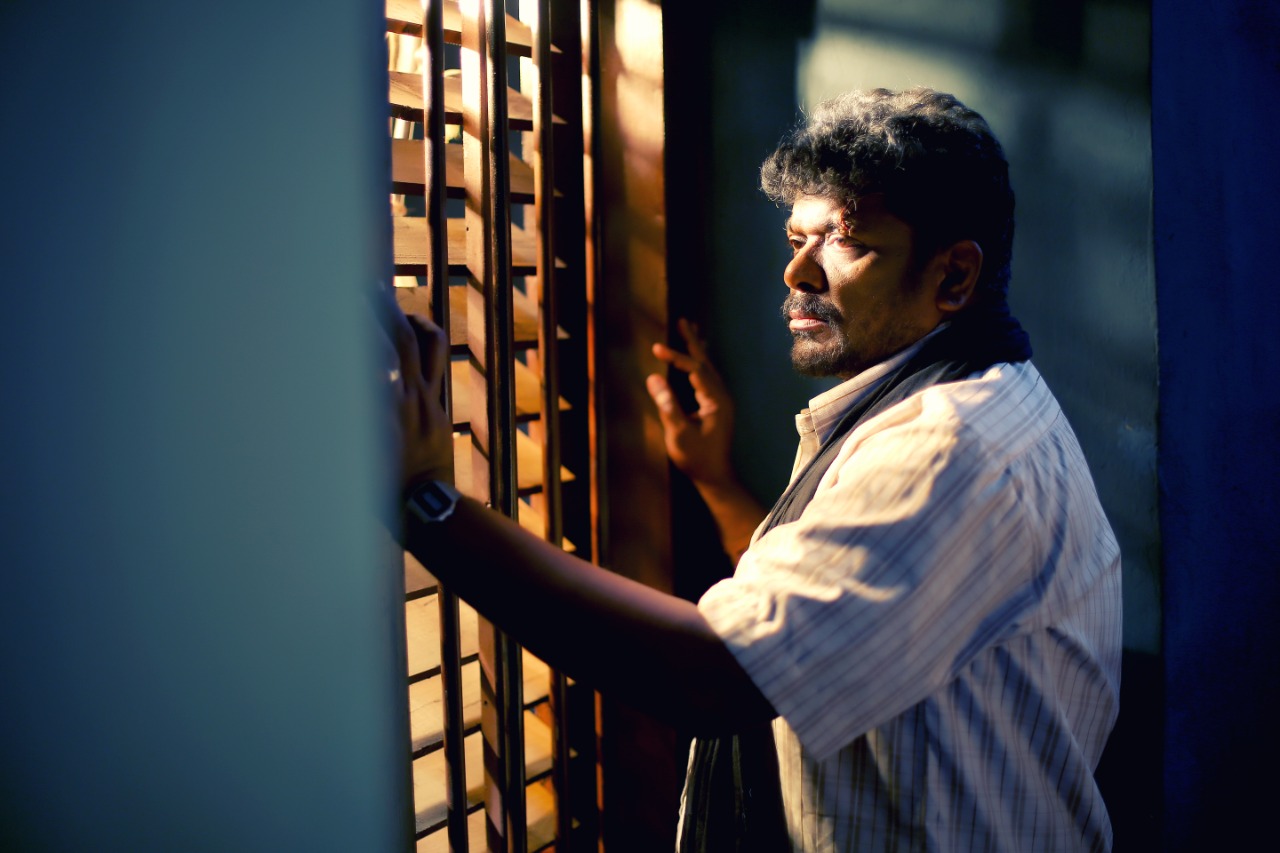
- Film
RadhaKrishna Parthiban’s One Man Movie
RadhaKrishna Parthiban is an Indian film actor, director, producer, and writer with over 70 films to his credit in Tamil cinema and a winner of the prestigious Indian National Award for films. In his latest venture Single Slipper Size 7, he takes on the challenge of being the director, producer, writer, and single actor.
You are wearing many hats, writer, producer, director and actor in your latest film Single Slipper Size 7 how did you pull it off and what were the challenges you faced?
I had the idea evolve in my head over the past 15 years and as nobody was willing to fund this film because it was considered too experimental, I had to take on the role of producer. As I started writing early drafts I realized that if this film had to be made, I being the director would give me ultimate control over my craft. It was like an inner dialogue between the roles of writer, actor, director, and producer in my head. It was very challenging, scary times! But, as the film took shape my conviction in the subject grew stronger. I couldn’t rest until I had completed the film. I remember telling my kids that I can either buy you a house or make this movie. Their decision was instantaneous, they said the house will be great, but the film will live forever!
What inspired you to make this film? Also, talk about the theme of the film.
This film is inspired by a real-life incident that I played out in my head, took some creative liberties and fictionalized it. I wanted the contrast in society to come across in this film. India has made a lot of progress but the country has a lot of contrasts, in a way, it is still the same as, if not worse, than the late 19th century England. A lot of poor people’s lives are dictated by the socio-economic problems. This same is true for the protagonists, without giving much of the film away I would like the audience to reflect on “what could be” while they see the portrayal of “what is”. I have captured a day in his life and his interactions with his own social and personal conflicts.
Besides the language (Tamil) how is south Indian cinema a.k.a. Tollywood different from Bollywood?
Besides the language, I don’t see any difference. The only difference I feel is the way the two cultures perceive the films. Tamil films are mostly watched in the state of Tamilnadu. Since the northern states do not speak the Tamil language, a lot of Tamil films are remade in the Hindi language and released as Bollywood films. A lot of actors work in both the industries and are successful in Bollywood as well as Tollywood. But at the end of it all, we make movies for the passion and love for cinema and as we all know love has no language.
Is the reach of Tollywood restricted to regional or is it national and international?
I would say not anymore because of the different OTT platforms that support regional cinema we have reached globally. Besides, there are fans of Tamil cinema all over the world. I believe there is a huge fan base in Japan for Rajnikanth, the biggest superstar from Tamil films. Similarly in other countries, there are audiences for Tamil cinema because of its strong and deep-rooted content.
Can you talk about your journey in Tollywood?
I started out as an assistant director with my mentor K. Bhagyaraj. I worked with him for around 40 films. My first film as a director and actor was Pudhiya Paadhai, released in 1989. It was also dubbed in the Telugu language and it was titled Rowdy Gaari Pellam. They were released simultaneously and to my surprise, they were both huge hits in both the languages. This sort of sealed my position as an actor. But the biggest boost for my career was winning the National Award for a film titled Housefull which I directed, produced and acted in.
How was Single Slipper Size 7 received by the audience and would you say it was a commercial success?
I am really weak in math and accounting that is why I made Single Slipper without targeting the return on investment in terms of money. But again, that has been my approach in all the films that I have made so far. I measure the commercial success by the quality of fans/audience rather that the quantity.

